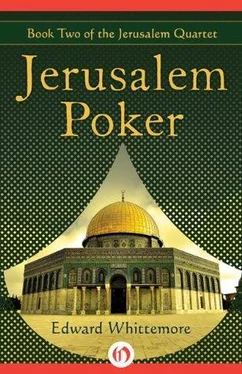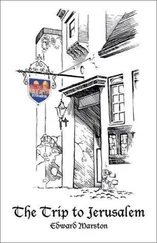Nubar smiled. Of course. A private army.
An elite private corps devoted to pomp and regularity, to discipline, recruited by him and commanded by him and bound by the strictest oaths of obedience, to be ruled with an iron fist by Generalissimo Nubar Parastein von Ho von Heim, Celsus of Bombastus, the incomparable Field Marshal von Wallenbomb, Maximum Leader and Number One, future Supreme Commander of the Albanian Sacred Band.
Nubar lounged happily at his workbench far into the night playing with crayons. Nothing could have been more soothing to him than pondering the uniforms of his elite corps and musing over its ceremonies.
A code of conduct?
Naturally similar to that of the Theban Sacred Band, those noble warriors of ancient Greece with their traditions of honor and physical cleanliness, homosexuality and fanatical brotherhood. But couldn't he add to that a final irrevocable act of initiation? Something along the lines of the vicious crimes perfected by the Spartan aristocracy?
In ancient Sparta each young officer had been responsible for planning and committing an atrocity at the end of his military training, sneaking out at night alone to secretly massacre an entire Spartan peasant household as brutally as possible, this crime against his own people seen as proof that he was worthy of being a leader for his country in battle.
Probably out of the question in modern Albania, thought Nubar. But still, the idea of secret crimes binding his men together strongly appealed to him.
Uniforms?
Nubar spent more time designing them, coloring everything in with crayons, than he did on any other aspect of the future Albanian Sacred Band. After all, uniforms were vital. Nothing was more important for the pride and bearing of men, for the sense of honor his elite corps would feel. It took Nubar months but finally he developed a portfolio of crayoned sketches that satisfied him.
The black leather tunic was skin-tight with a high round black leather collar. The black leather pants were skintight. The black leather jackboots flared above the knee, and the black leather military cap rose high in front with a massive silver skull mounted over the visor. A black leather trenchcoat was to be worn at all times, indoors and out, as were black leather gloves long enough to reveal no flesh at the wrists.
An animal skin would be thrown over the right shoulder and gathered together by a silver skull on the left hip. The rank and file would wear leopard skins, the officers tiger, he himself, as king of the jungle, lion.
The belt of the trenchcoat would be a heavy silver chain. Hanging from it would be a large spiked mace and a rusty straight razor in a thick cylindrical black leather sheath, a leather blackjack, a black leather fist and a long black leather truncheon.
Loops of heavy silver chain would gird the chest between medals awarded for merit, the medals depicting stags and stallions and bulls, wolves and jackals and hyenas. A large silver skull would hang around the neck on a silver chain.
His own uniform would have gold everywhere instead of silver.
Ceremonies?
They would be held exclusively at night, by torchlight, his men facing him in perfect lines and ranks. The ceremonies would consist of him ranting at the top of his lungs, strutting back and forth, while the men listened. He would deliver interminable speeches detailing all his theories and concepts, talking as long as he liked about whatever he liked, while the massed corps remained rigidly at attention, expressionless, the slightest movement by anyone cause for immediate disgrace and expulsion. Then when it suited him he would distribute awards for obedience and give everyone minute instructions about what they were going to do next.
An elite private army. Spiked maces and skulls and truncheons, fists and black leather by torchlight, iron discipline.
Nubar completed his plan in his tower room late on a Sunday night. For the third time that evening he mixed equal amounts of sulphur and lead and iron and arsenic, copper sulphate and mercury and opium.
Tomorrow he would have to return to the unsettling reports from Jerusalem, but now at least he was at peace with himself.
Nubar marched to the window and stood with his hands on his hips staring defiantly out at the darkness, at nothing, profoundly immersed in visions of order and obedience and deeply satisfied with himself, unaware that his old friend Mahmud would be responsible for both the initial success and the sordid destruction of the Albanian Sacred Band.
He had first met Mahmud when he was twelve and Mahmud a year older.
In the spring of that year Sophia had vacationed in Rhodes. One evening at sunset on the walls of the Crusader fortress there, Sophia had chanced to fall into conversation with another tourist, an elderly princess connected to the Afghan royal family. The two old women took an immediate liking to one another and retired to Sophia's hotel to dine. The princess was on her way to the Riviera but promised to stop in Albania on her return in September, bringing with her a young grandson as a playmate for Nubar.
When they arrived at the castle Nubar thought the Afghan prince looked much more than a year his senior. Mahmud was a head taller than he was, his voice had deepened and there was hair growing on his flabby chest. Nubar, still without body hair and speaking in a high squeaky voice, hid in the castle in embarrassment and refused to come out and play.
At the time Nubar was fascinated with bad Albanian poetry as a result of having met a man named Arnauti, a young French national of Albanian descent who had shown him a battered yellow volume of his poems while passing through the country on his way to Alexandria. The poems were grossly sentimental but they had beguiled Nubar and he was now writing poems himself, imitating Arnauti by cramming his verses with the names of rare minerals and semiprecious stones, a device Arnauti had developed to make commonplace colors seem exotic.
After hiding for several days Nubar finally agreed to show Mahmud his poems. Mahmud said he liked them very much. The boys began giggling and before long they were panting together on a couch, whispering lurid accounts of real and imagined experiences with animals and household objects and adult male servants.
Of all Mahmud's tales the one that intrigued Nubar the most was his account of an exclusive medical clinic outside of Kabul. Nubar had never been treated in a hospital and the descriptions of somber men in white coats, coming and going with strange instruments, fascinated him.
When he was eleven, it seemed, Mahmud had begun to manifest signs of a nervous disorder. He laughed hysterically at inappropriate moments and then broke into tears for no apparent reason. Afghan specialists were called in and diagnosed dementia praecox with possible overlays of adolescent catatonia.
The psychiatric clinic on the outskirts of Kabul was recommended for intensive observation.
Mahmud spent the next year and a half at the clinic, which was situated in a pastoral setting that included brooks and ponds, sheep and goats and many wild flowers. Every morning the doctors treated him with hypnotism and every afternoon his mother faithfully visited him, to take him for a walk on the grounds of the clinic. But no progress was made. If anything Mahmud wept more violently and laughed more inappropriately.
One fine sunny day Mahmud had been out for the usual afternoon walk with his mother when a doctor had stumbled upon them behind a bush next to a bubbling brook. The doctor had suddenly begun shouting at his mother and angrily waving his arms.
What are you doing, woman? yelled the doctor.
Mahmud was lying on his back in the grass giggling inaudibly, gazing up at the rays of sun slanting through the bush while his kneeling mother performed fellatio on him. His mother, an unsophisticated Tadzhik woman whom his father had married for political reasons, raised her head in confusion and wiped her mouth.
Читать дальше












